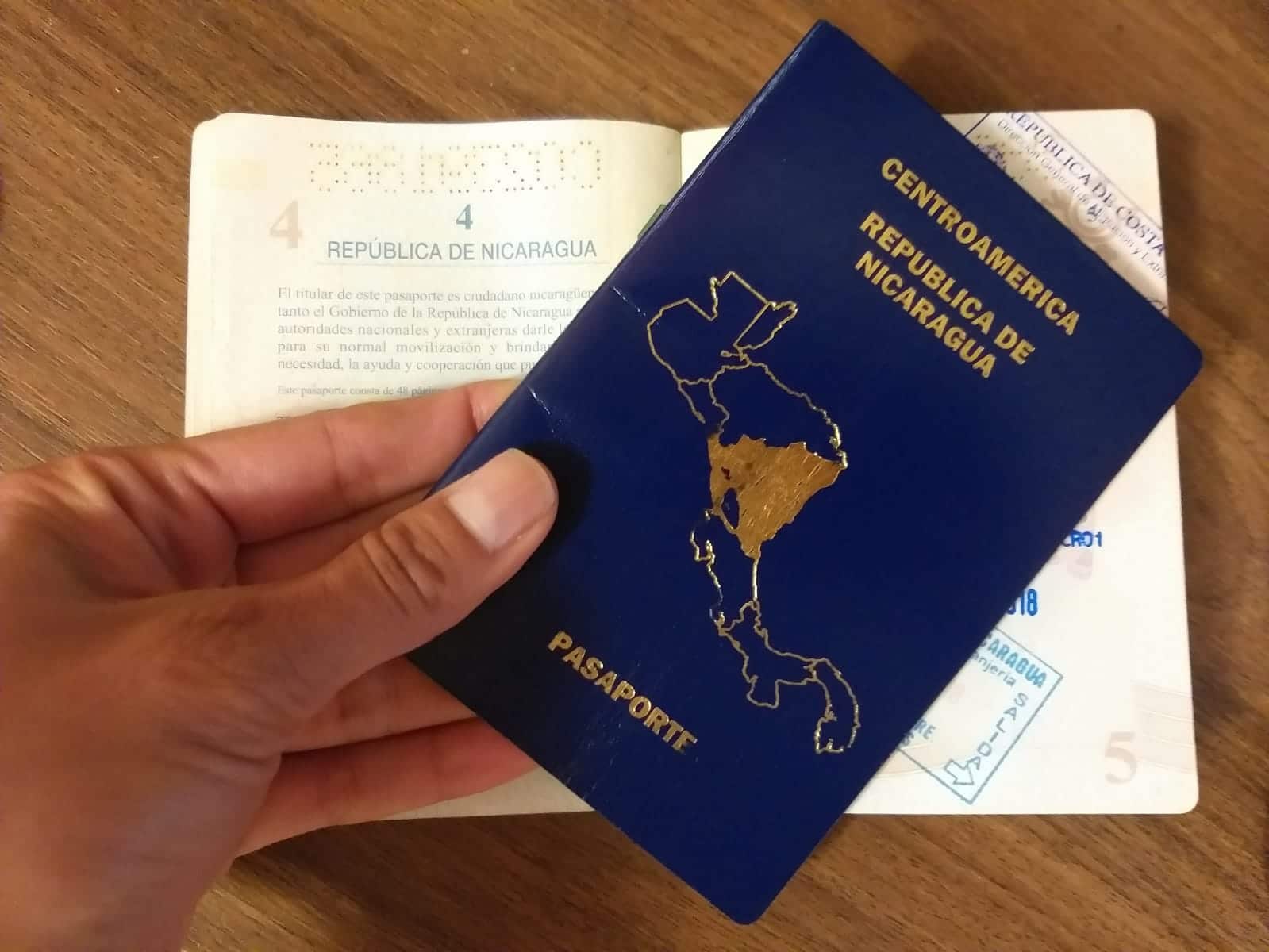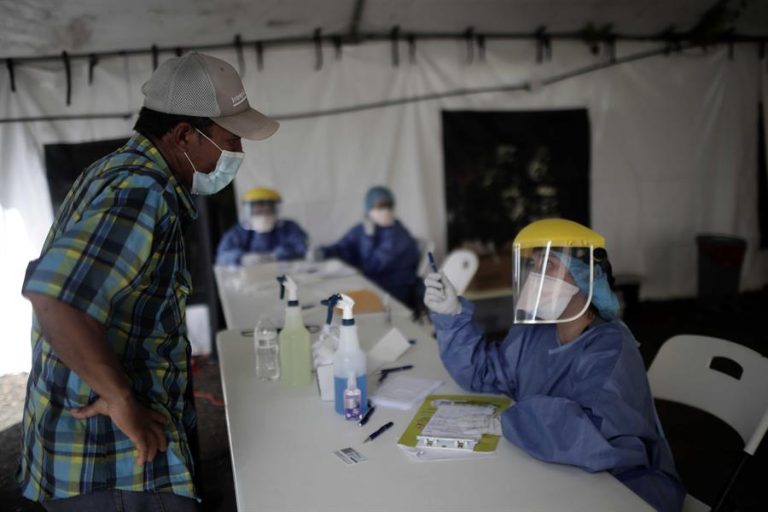12 de mayo 2021

Nicaragua: Public Employees Hindered from Traveling to USA

PUBLICIDAD 1M
PUBLICIDAD 4D
PUBLICIDAD 5D
A ‘covid test’ result is not necessary to enter Costa Rica, but an insurance that covers medical and lodging expenses is required

The coronavirus is spreading to the semi-urban and rural zones of the country
As of a month ago, Costa Rican consulates in Nicaragua resumed the authorization and delivery of visas for Nicaraguans. This service was suspended for more than a year due to the covid-19 pandemic, and the Costa Rican borders were closed to contain the virus.
Costa Rica began a gradual reopening with some conditions for tourists, while the land borders were opened for foreigners on April 5th.
Two days after this opening, the Costa Rican embassy in Nicaragua announced the reactivation of appointment requests for consular visa procedures in both offices — Managua and Chinandega — with the same pre-pandemic scheduling process, via the following telephone number: (505) 7833-5400.
Thus the reestablishment of migratory flows between the two countries began, linked by the historical migration of Nicaraguans to Costa Rica due to family, economic and social ties.
However, the movement is not as large as before the pandemic, since both countries still have requirements in force unrelated to the health emergency, which complicate and increase the cost of travel.
Below we detail how Nicaraguans can apply for a Costa Rican visa and the aspects to take into account when traveling to Costa Rica from Nicaragua.
Before scheduling the appointment, you must pay 32 dollars for the Costa Rican visa at the branch offices of Lafise or BAC banks. There is an additional cost of three dollars for the appointment.
The request for the appointment for the interview can be made one hour after making the payments, through the call center whose telephone number is (505) 78335400.
On the day of the appointment you must bring:
For minors, the same procedures and costs apply, and a photocopy of the page where the minor's exit permit is stamped, previously processed at the Nicaraguan Immigration Office, as well as a valid passport or identity card of both parents, along with copies of these identity documents.
If the guardianship of the minor corresponds to a third person, this person must present the legal resolution that indicates who is in charge of the minor before the authorities. If the child is not traveling with his/her parents or guardian, the passport and visa of the persons who will accompany the child on the trip must be presented.
Appointments can only be made by telephone. CONFIDENCIAL wanted to know more about the procedure, once the applicants arrive at the consulate, as well as if they operate with limited daily quotas, but we did not receive a response from the Costa Rican Immigration Office, nor from the Costa Rican Foreign Ministry, nor from the Costa Rican consulate in Nicaragua.
To enter Costa Rica it is not necessary to present a negative result of a covid-19 test, but a travel insurance that covers medical and lodging expenses, in case the tourist gets infected with coronavirus and must undergo quarantine, is required.
The cost of the travel insurance depends on the number of days the tourist will stay in Costa Rica, since it must be valid from the day he/she leaves Nicaragua until he/she returns to the country. The minimum purchase of an insurance policy is five days, even if the stay in the country is shorter.
The cost of insurance per day varies depending on the insurer, but it usually starts at US$11.
You can use an international travel insurance, as long as it covers the above mentioned expenses, or purchase one with Costa Rican insurers accredited by the Costa Rican Tourism Institute (ICT) such as those of the National Insurance Institute of Costa Rica (INS), BlueCross BlueShield Costa Rica, Europ Assistance and Sagicor.
Once the insurance is purchased, a certificate or letter must be requested from the insurance company, in Spanish or English, stating the following:
This certificate must be attached to the health pass to be reviewed and approved by the Costa Rican authorities. It is a digital epidemiological form that must be completed 72 hours before the trip.
Once the health pass is completed, a QR code will be generated, which will be scanned at the time of travel by the Costa Rican authorities, either on your cell phone or printed on a sheet of paper.
When returning to Nicaragua, remember that the Government requires a negative covid-19 PCR test result as a mandatory entry requirement. Tourists and nationals must take the test 72 hours prior to entry in order for it to be valid.
There are several laboratories In Costa Rica where the Covid-19 test can be performed, such as Laboratorio San José, Laboratorio Labin, Clínica Bíblica, among others.
Some centers have alliances with international ground transportation companies, so that the cost of the test is cheaper for passengers.
The prices of the test range from 65 to 100 dollars. Results are ready within 24 to 48 hours. All laboratories work by appointment and some ask to fill out a form before the test is performed.
In this procedure, tourists must be careful and rigorous with the data provided (no mistakes), since they are the ones that will be reflected in the result of the test.
The closure of the land borders drastically affected businesses and workers who depended on the movement in and out of Nicaragua and Costa Rica.
Companies specializing in international transport of passengers on land were among those who were hit the hardest, with layoffs, and reducing personnel and operations.
Despite the opening of land borders, transportation companies still operate at low capacity, and travel schedules and dates are few compared to the times before the pandemic.
The cost of the ticket is US$59 round trip.
This article has been translated by Ana María Sampson, a Communication Science student at the University of Amsterdam and member of our staff.
Archivado como:
PUBLICIDAD 3M
Periodista nicaragüense exiliada en Costa Rica. Se ha especializado en la cobertura de temas de migración, género y salud sexual y reproductiva. También ha trabajado en Marketing y Ventas y ha sido Ejecutiva de Cuentas.
PUBLICIDAD 3D